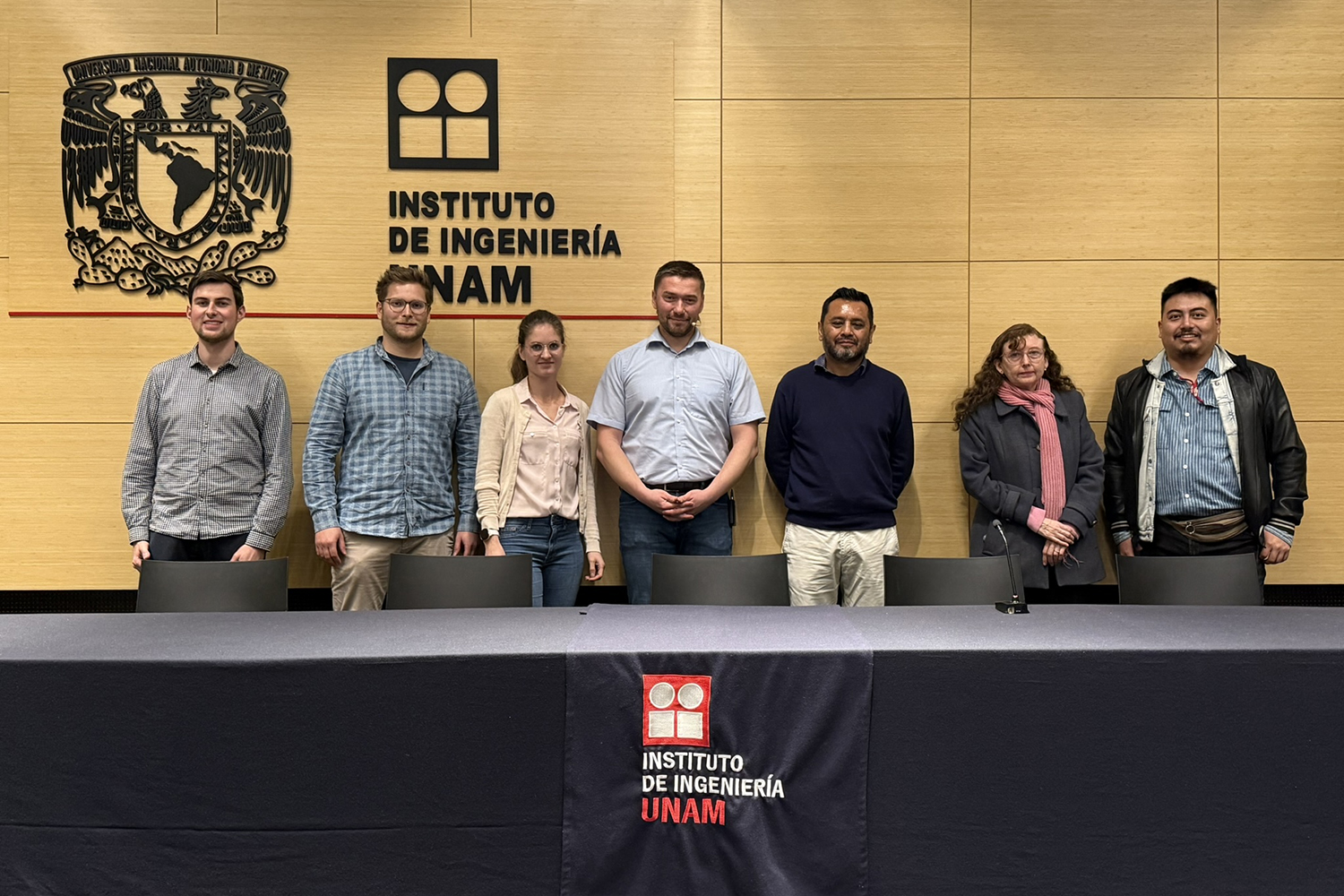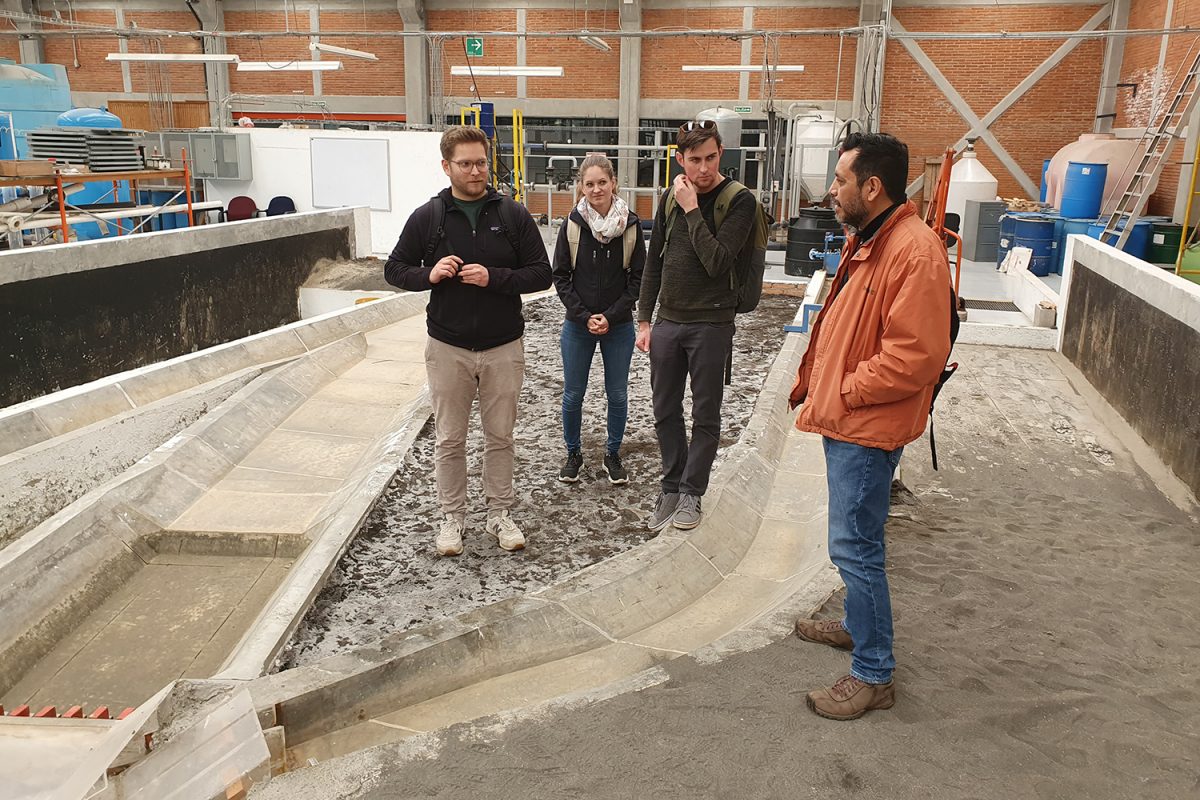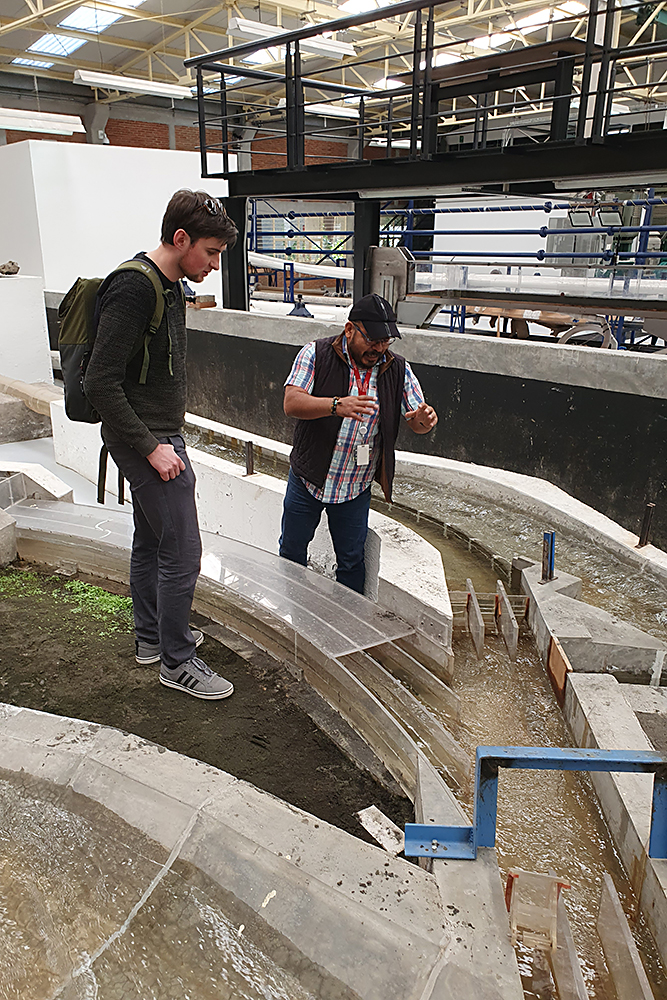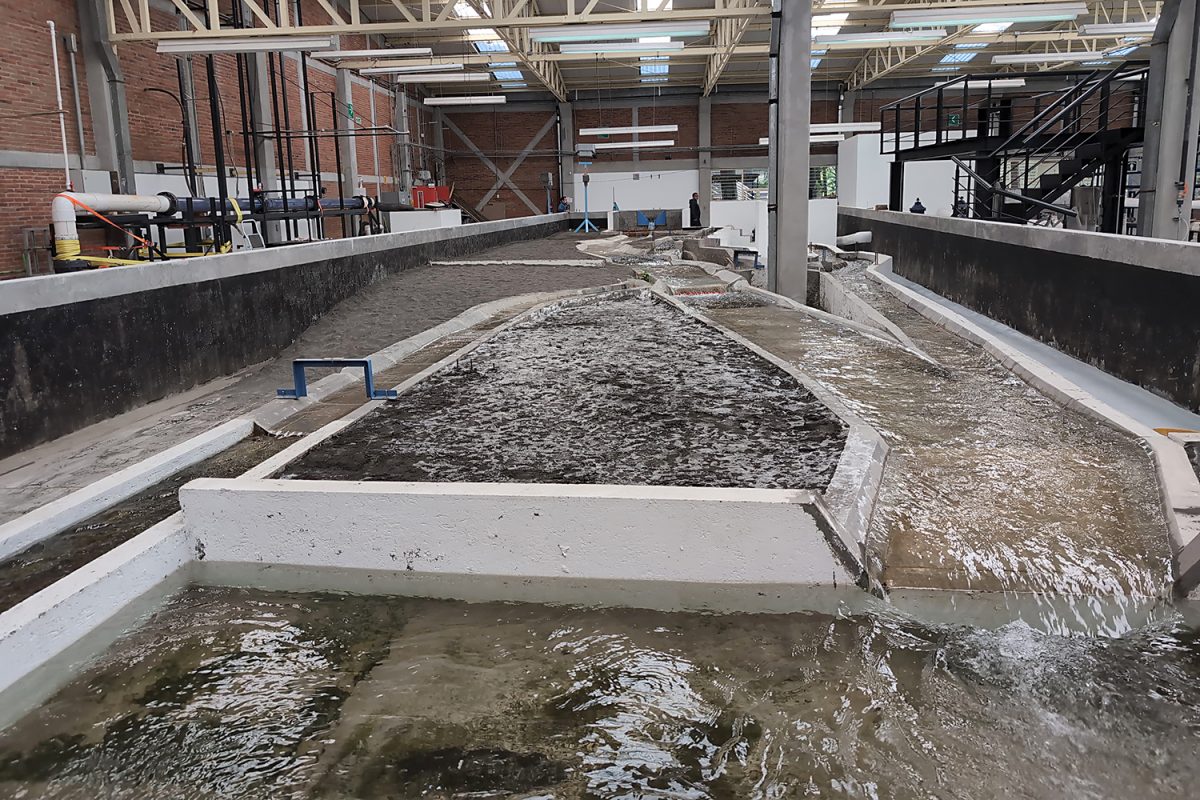Tracking hurricanes German-Mexican research on flood management
Helene, Katrina, Milton: Time and again, people in Central and North America have to expect hurricanes to cause devastating damage. Their effects, including heavy rainfall, storm surges and flooding, pose a major threat. And tropical cyclones will become more violent as the Earth warms. Scientists at the Universidad Nacional Autonóma de México (UNAM) are also concerned. In a joint project with researchers from the Leichtweiß Institute of Hydraulic Engineering (LWI) at TU Braunschweig, they are investigating ways to optimise flood and reservoir management in Mexico. The research project is supported by seed funding from both universities.

The working groups from Braunschweig and Mexico (from left): Tobias Langmann, Henning Müller, Christina Radtke, Hannes Müller-Thomy, Sinuhé Alejandro Sánchez Martínez, Maritza Liliana Arganis Juárez and Edgar Sevilla. Picture credits: Amalia Gracía and Alejandro Morales, UNAM
After several digital meetings, the scientists recently met in person for the first time. Dr Hannes Müller-Thomy, Dr Christina Radtke, Tobias Langmann and Henning Müller from the Department of Hydrology and River Basin Management at the Leichtweiß Institute for Hydraulic Engineering and Water Resources travelled to Mexico City to exchange ideas with Dr Sinuhé Alejandro Sánchez Martínez and Dr Maritza Liliana Arganis Juárez from the Institute of Engineering Sciences at UNAM. The aim of their joint project “Validation of precipitation reanalysis products for rainfall-runoff modelling” in Mexico is to evaluate global atmospheric simulations and their suitability for reconstructing precipitation events in Mexico over recent decades. This information is crucial as observational data are limited, but is needed for a variety of water management applications, such as the design of urban drainage systems, flood control, or the temporary storage of water to irrigate agricultural land during droughts.
Optimising flood management with reanalysis data
“The processes in the atmosphere are complex and interconnected, which makes them challenging to simulate. The aim of our work is to evaluate the simulated precipitation data and identify the most appropriate data set for Mexico, in order to provide more accurate data for flood risk management and water management projects,” says Hannes Müller-Thomy.
In a region with long observational time series, such as precipitation, atmospheric models can be adapted well. The reanalysis data, i.e. simulations of the past, match the observational data for these regions. However, in regions with little observational data, such as Mexico, complex evaluations are required to ensure the usability of these data. “The evaluation of different reanalysis products can vary widely due to the different input data used. However, the climate time series available (including precipitation, temperature and pressure since 1950) represent a valuable opportunity for planning and optimising water management projects. For example, the new data will make it possible for the first time to predict the magnitude of the century floods and the damage they will cause,” says Müller-Thomy. It will also improve the data base for the frequency and intensity of hurricanes, which are a particular threat to the Caribbean and Mexico.
From big to small
Another aspect of the research is to improve the spatial and temporal resolution of the data. While global models often use a coarse resolution, the analysis of heavy rainfall events in urban areas such as Mexico City requires a more detailed rainfall record in 5-minute time steps. This is the only way to accurately map the rapid runoff processes that occur on sealed surfaces. The scientists are therefore investigating methods to increase this resolution (downscaling) in order to achieve the required data quality. Processing the data will provide the basis for designing water management projects and optimising flood risk management and reservoir management by UNAM scientists.
Mexican water expertise soon to be available in Braunschweig
In addition to the scientific discussions, Hannes Müller-Thomy gave a research talk on ‘Precipitation: information expansion in space and time’, which is also available online (https://www.youtube.com/live/AfcNuYseXcE). In discussions with several local research groups, possible collaborations were discussed, the cornerstone of which is the joint research activity within the Seed Funding project. The return visit to TU Braunschweig is expected in May 2025.



